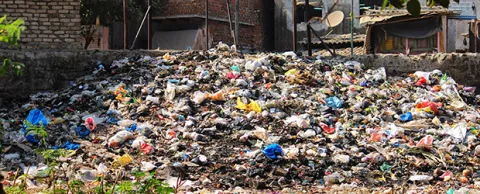
If your city is dirty, there are a lot of reasons why you need to clean it up. Trash piles attract rodents, creating a public health problem. Filth can also make your city less attractive for economic development.
Illegal dumping not only makes the problem worse, it’s becoming worse itself. As more people move to cities, they’re generating more trash. And with populations growing, each person becomes more anonymous and more likely to think they can get away with illegal dumping.
Council Associate Partner Enevo recently profiled six cities that are using different approaches to combating illegal dumping. From surveillance to apps to getting smarter about when they pick up the trash, these cities offer great ideas that can help you clean up. (And for even more ideas, check out our Special Theme Edition on waste management.)
Many of these ideas would have been prohibitively expensive or even outright impossible a few years ago, but thanks to advances in technology — including inexpensive sensors, networks and predictive analytics — these ideas won’t break the bank and can be deployed quickly. Further, the same principles that are driving these solutions can be applied to other smart cities challenges as well. — Kevin Ebi
Catching people in the act
City resources are usually limited both for cleaning up the mess and catching those responsible for it. San Jose and Dallas are examples of two different approaches.
San Jose has launched an app that citizens can use to report illegal dumping; the city plans to analyze the data to uncover hotspots and concentrate enforcement efforts on them. Dallas, meanwhile, has installed motion-activated cameras in strategic areas; most of its illegal dumping problem has been in more rural areas.
People don’t have to dump illegally
Baltimore and Los Angeles are giving people more options for discarding their waste. Baltimore plans to install more than 200,000 garbage cans around the city; Los Angeles is adding another 5,000 on the streets.
Data show this works. Baltimore installed 11,000 garbage cans during a pilot project. The number of calls it got about rat infestations dropped by 26%.
Getting smarter about picking it up
Washington, D.C., and Kirkland, Washington, are using Enevo’s sensors to monitor waste levels in their receptacles.
This accomplishes two things. First, the city doesn’t have to waste resources sending up trucks to empty trash bins that are already mostly empty. Second, it may help to cut down on illegal dumping by ensuring that when citizens want to throw something away, they aren’t constrained by a bin that’s already full.
More stories …
The end of garbage? Join the next wave of waste management
All that garbage: Cities explore one-bin recycling to reduce waste (and cost)
More people, more garbage: Report forecasts rapid growth in smart waste market



